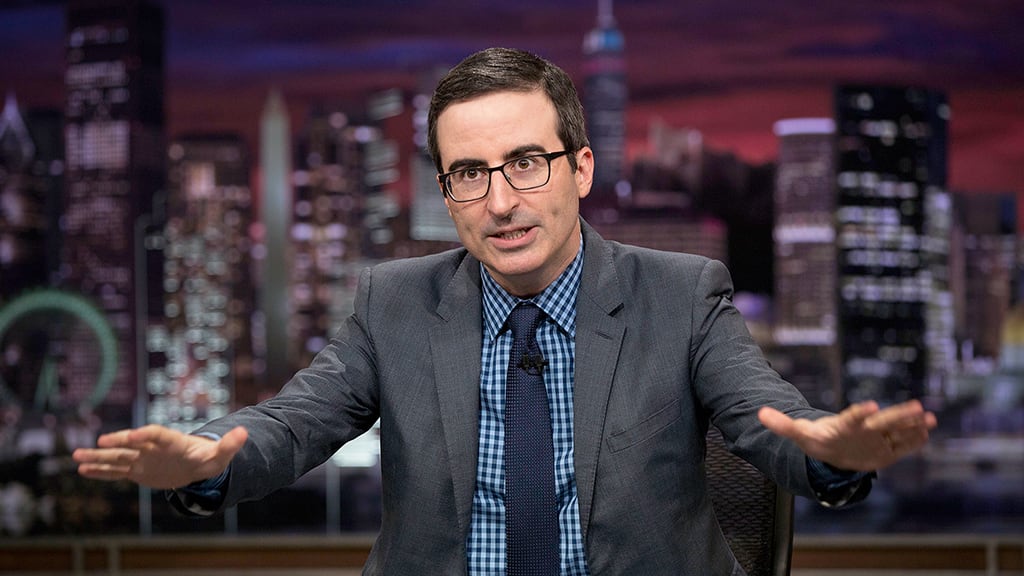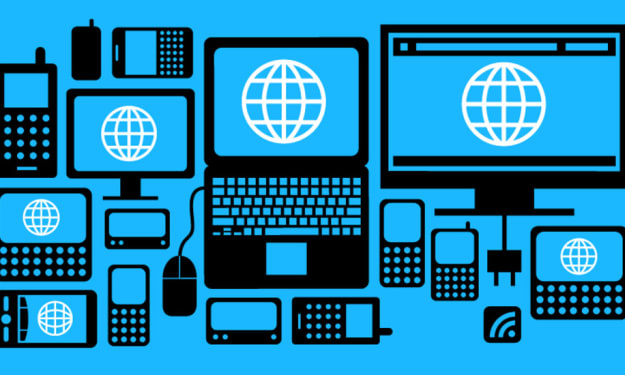John Oliver Calls on Us Gamers to Oppose Trump's Net Neutrality Changes — And It's No Joke
With President Trump now implementing plans to diminish Obama-era net neutrality rules pertaining to equal access, things could soon turn ugly for us gamers.

It's a Friday night and you're sitting at home watching your favorite stream. You notice the quality has begun to degrade, some of the content seems amiss, and the whole experience is just stuttering and unpleasant. And the next thing you know, the streamer abruptly ends their stream.
All of this happening because the Federal Communications Commission (FCC) has allowed your ISPs to block or limit connections, or even play favoritism with censored content based on how you are subscribed. It's also the FCC's way of playing favorites with specific websites, applications, and the online products you might use. In short, it's the agency's way to throttle your internet's bandwidth based on what services you choose to have for your internet. The primary targets? Streamers, gamers, and those who use a lot of freakin' bandwidth.
While the future of net neutrality had been on shaky ground three years ago, the FCC took steps to safeguard it in 2015, reclassifying broadband as a common carrier — as in a telephone company — under Title II of the Communications Act of 1934. However, with President Trump now implementing plans to diminish these Obama-era net neutrality rules pertaining to equal access, things could soon turn ugly for us gamers.
John Oliver Takes Up The Fight
British talk show host and comedian #JohnOliver and his team at HBO's Last Week Tonight has launched a campaign aimed at consumers, offering them a platform on which to voice their support for the current net neutrality regulations that were passed two years ago.
Below is the Last Week Tonight with John Oliver segment in full.
To help circumvent the issues related to the FCC's web page, Last Week Tonight with John Oliver set up a redirect website at gofccyourself.com, which will allow you to leave comments against the FCC's proposals. So instead of making you fumble through the #FCC's website, this redirect allows you to go straight to the commentary section so that you can easily offer your opinion regarding net neutrality.
The people Oliver's segment focused on aren't just your everyday web surfers, but gamers like you and I, YouTubers, social media enthusiasts, and those who use the internet to generally make a living. His rally cry is simply: Stand strong against #netneutrality. So far, close to 200,000 people have left comments.
What Is Net Neutrality?
According to "Chocolate Rain" internet star Tay Zonday:
"Net neutrality is the idea that your pipe to the internet, whether that is your cable internet connection, your LTE wireless internet connection — however you are receiving information via the internet, that pipeline to the internet is not allowed to arbitrarily pick favorites in terms of the content that you consume.
"For example, if you like to use Google search and your roommate likes to use Bing search, your internet service provider can't say, 'Well Bing is paying us a lot of money so we're going to slow down Google and Yahoo! and their other search engine competitors to make Bing load fast.'"
Adding to Zonday's description of net neutrality, Oliver said:
"Net neutrality is about more than just speed. At its heart it is the principle that internet service providers, or ISPs ... should not be able to engage in any sort of fuckery that limits or manipulates the choices you make online.
"It also helps ensure a level playing field so that big companies cannot undermine small companies before they can take off."
Here's What You Need to Know About Title II Net Neutrality
According to FCC chairman Ajit Varadaraj Pai, the rules that were implemented in 2015 were "heavy-handed regulations," and the governances that were put in place (no throttling, no favoritism, etc.) were archaic, hurt investments, and small ISPs had no way to deal with the regulatory butchering that occurred as a result. Wait, what? Is this true? Well, not necessarily, but it does make it a bit harder for small companies to handle the likes of gamers and streamers. This puts rural folk like myself here in Oklahoma at risk of having internet service providers like AT&T or Suddenlink Communications tell us what we can or can't do with our internet.
Here's what Pai had to say about this proposal last month at Washington, D.C.'s Newseum:
"Earlier today, I shared with my fellow commissioners a proposal to reverse the mistake of Title II and return to the light-touch regulatory framework that served our nation so well during the Clinton administration, the Bush administration and the first six years of the Obama administration."
So what exactly does Title II do? It protects ISPs from the blocking of websites, apps and internet-based services, allowing everyone to have free reign of their internet. If Pai's proposal goes through to reclassify the internet as a Title I internet service? We'll be back in a techno stone age, where ISPs will potentially wage a war on their customers due to throttling and website blocking. But it can't be all that bad right?
It's Bad When Communications Companies And Advocacy Groups Fight Back
Before resigning earlier this year, then-FCC chairman Tom Wheeler passed a bill that insisted on basic tests to ensure customers would be happy with their ISP. He set up an agency to help protect consumers, and formed rules that could evolve in order to fit new devices and networks, with guidelines that remain consistent.
These Wheeler-implemented rules helped to make it clear what behavior is acceptable and what isn't. Good deal, right? Yes. It's continued to work to this day. Ever notice your games, apps, and streaming services work better than ever? Thank Tom Wheeler and his team for that one. Back in January, he said:
“Passing legislation or adopting regulations without these key provisions and calling it net neutrality would be false advertising.”
Some Democrats, activists and web companies have come out in opposition to Pai, who is a former associate general counsel at Verizon. Democratic Florida senator Bill Nelson, who is ranking member of the Committee on Commerce, Science, and Transportation, said that “depriving the FCC of its ongoing, forward-looking oversight of the broadband industry amounts to a dereliction of duty at a time when guaranteeing an open internet is more critical than ever.”
In turn, companies such as Google, Facebook, Netflix, and even the Internet Association have all spoken out against the change in rules. Internet Association CEO Michael Beckerman said:
“The current FCC net neutrality rules are working and these consumer protections should not be changed. Consumers pay for access to the entire internet free from blocking, throttling, or paid prioritization.”
According to Pai, the FCC is ready to wage this war, a war his commission will win. Downside for him? There are many voices out there that will speak up against him. So stand up. Head on over to the gofccyourself.com and don't let your voice remain silent. The more voices we have, the better the online gaming experience.
About the Creator
Dustin Murphy
A video games journalist and Content Creator. He has been featured on sites such as AppTrigger and MoviePilot. He's the president and editor-in-chief of the independent news publisher Blast Away the Game Review.






Comments
There are no comments for this story
Be the first to respond and start the conversation.